News
OGUN GO KILL UNA!
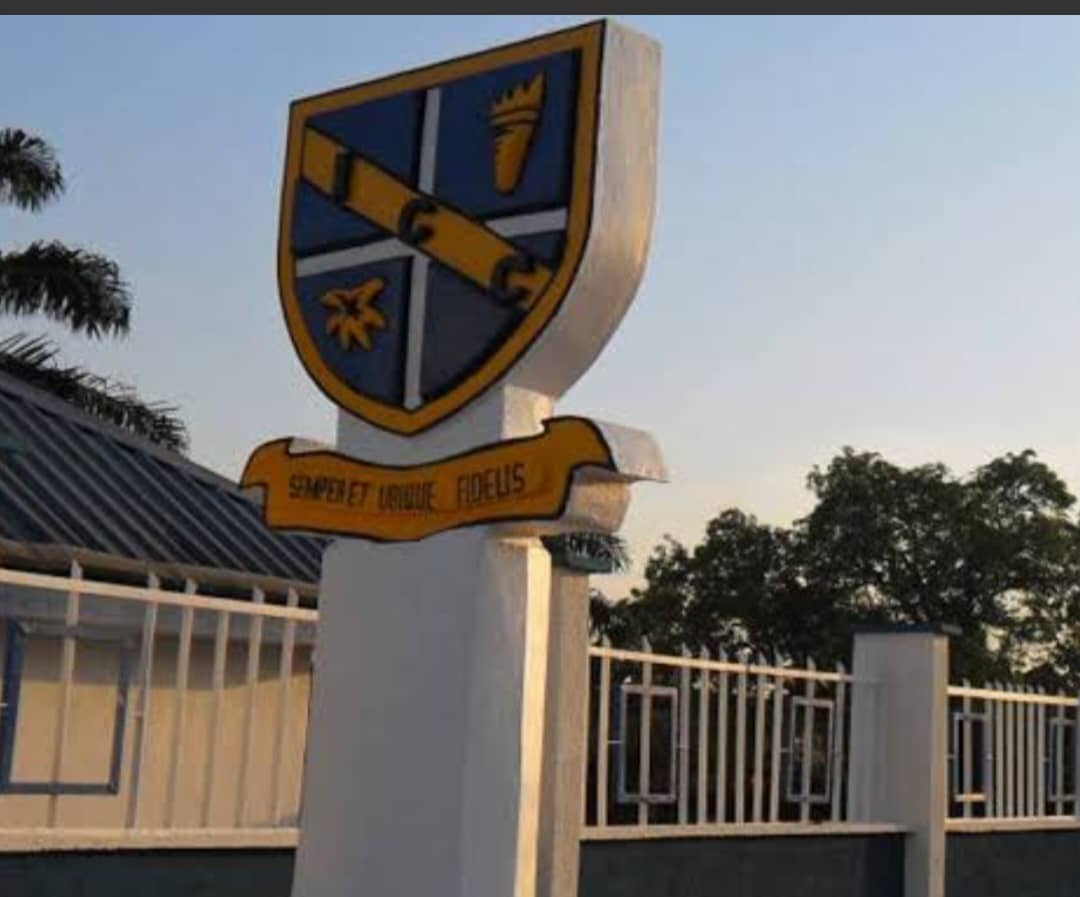
*By Tunde Olusunle
Joseph Odidi Itotoh, the legendary educationist who raised my generation at the famous Immaculate Conception College, (ICC) in Benin City, was notable as a thoroughbred teacher, an uncompromising disciplinarian and a school administrator *par excellence.* He received us, enthusiastic little boys, into the luminous premises of the institution in September 1975. He would subsequently guide us with paternal commitment through five most impactful years of our lives as teenagers, which largely shaped our personalities and perspectives. As against the extant practice where school principals were reposted every two or three years, Itotoh was retained in ICC for 10 full years by the Midwestern, and later Bendel State governments. This underscored official acknowledgement and appreciation of his revolutionary exploits in the institution.
Itotoh led a multiracial team of dedicated teachers and instructors to provide world class education and instruction to us. Irish, Indian, Pakistani, Beninoise and Togolese teachers collaborated with their dutiful and committed Nigerian colleagues to set us up on solid foundations in life. The academic session just before Itotoh’s advent, the institution posted an uninspiring below 50 percent pass in the West African School Certificate, (WASC) O’Level examination. The sleepless Itotoh pursued an uncommon reformatory project to radically reposition ICC. By his third year in office, the school was brandishing a 100 percent pass performance sheet. This implied that the least performing students earned a minimum *Division Three* pass. This could get them into some polytechnics or colleges of education, while taking remedial courses to make up for foundational deficits.
We could almost swear that Itotoh deployed supernatural enablements in the discharge of his assignment. He lived in the principal’s house within the school premises. The cute bungalow sat on a small elevation at the back of the school acreage, abutting a section of the famous *Benin moat.* There were localised myths and fables around and about the moat which kept us in awe and trepidation. A certain midget-spirit, *useku* it was alleged, appeared from the moat from time to time from the direction of the moat. It reportedly scared and terrorised those it found at wrong places late at night! Itotoh had the entire topographical and geophysical map of the school on the lines of his palms. He toured the entire expanse of the school virtually everyday, holding his famous whip to keep errant students in check. On his night patrols, Itotoh would beam his torchlight straight in your face if he found you loafing around, simultaneously calling out your name. He knew the names of each and every student in ICC. Students of *Bini* origins among us usually whispered in hushed tones describing him as *ovbi azen,* son of a witch!
Itotoh studied English at the University of Ibadan, (UI) and obtained his masters and doctorate from the same institution. Such was the depth of his immersion into self-development as far back as those years. He would serve as education commissioner in the 1990s and as Minister of State for Internal Affairs during the second term of the President Olusegun Obasanjo milieu. Such was the quality of Itotoh. With deep roots in the English language, it was understandable, he had total resentment for the deployment of pidgin English and indigenous languages under his watch. This was as he strove to mitigate the pollution of standard English by other forms of the language in our young and impressionistic consciousness. There was substantial compliance with this *fatwa* especially with the reinforcement of Itotoh’s “commandment” by prefects on various briefs, who themselves were students. I was the prefect in-charge of *Bishop Kelly House,* for instance and we prided ourselves as the largest and neatest house, ever dominant in academics and sports. At our level as teenagers therefore, we had begun to take preliminary lessons and tutelage in leadership and responsibility. We all are the better for it today.
Most of us students in our time resided in Benin City with our parents or benefactors. During midterm breaks and holidays, we stayed in that historic city which is swaddled in so much mythology. It was a very robust melting pot and we experienced the pulse and dynamics of the sociocultural space. Pidgin English was an inevitable median between the various tongues, and the conventional English language. Our pidgin English lexicon was regularly enriched courtesy of borrowings by “broken” English, as some prefer to christen it, from the dominant indigenous tongue. I recall the admission of the *Bini* expression *you go see Oba* into modern pidgin English during my sojourn in Benin City. That phrase is an original *Bini* contribution to the lexicon of contemporary pidgin English. Royalty and *Oba-ship* are ensconced in mystique, in *Bini* cosmology. The *numero uno* royalty in Benin kingdom is the *Oba.* He is addressed and serenaded with jaw-breaking prefixes before the announcement of his name.
He is therefore the: *Omo N’Oba N’Edo Uku Akpolokpolo,* before the preferred appellation of the incumbent monarch is mentioned. *Oba Akenzua II* was in office in my years in Benin City but was succeeded by *Oba Erediuwa II* just before I left. The *Oba of Benin* sparingly makes public appearances. Except of course during specific traditional events in the *Bini* traditional calendar. He is equally seen in public when he receives high ranking dignitaries who seek to pay homage to him when in his domain. The *Oba of Benin* will not be found in places or events capable of denigrating his office as prime monarch-spiritual leader of his people. Seeing the *Oba,* therefore is a tortuous, tedious labyrinthine excursion. Rabble-rousers are therefore admonished not to court the kind of entanglements which will precipitate a figurative quest for the pardon of the *Oba* who will be hard to access.
Swear words and expressions were also common on the streets during our growing up years. Such invectives range from the peripheral, maybe pedestrian, to the presumably more potent, vile and vicious. Some verbal missiles indeed deliberately and intentionally appropriate deep traditional motifs for desired potency and rapid action. *Ogun,* the dreaded Yoruba god of iron and metallurgy occupies the same podium and reverence in *Bini* epistemology. Because of its potential for instantaneous and efficacious destruct, *ogun* is dreaded and venerated in *Bini* cosmology. The invocation of *ogun* in adjudication in a contestation, is taken very seriously by sections of the *Bini* nationality. Most will prefer any other form of verbal deployment in the course of an altercation, to the invitation of *ogun* in *Bini* culture.
This video of metal joints and other components on the *Second Niger Bridge* has been trending in the last few days. A concerned Nigerian recorded the site of the excavation of heavy metallic components of the face of the bridge from a point which in engineering is referred to as the “expansion joint.” Much as the narrator spoke in *Igbo,* we can piece together the fact that the crime is associated with sellers of scrap metals in Anambra State. They are those he described in the narrative as dealers in “iron condemned,” headquartered in Onitsha and its environs. You couldn’t but be thoroughly exasperated watching that clip. Just days before, I had gotten into a robust but civil engagement with a gentleman on some platform on a related issue.
There was a news item to the effect that police outriders will henceforth patrol the *Third mainland bridge* in Lagos which has been serially vandalised by thoughtless vagrants. It was recently rehabilitated at great cost by the federal government and will henceforth be on regular police surveillance. My point in the banter with the person in question was that monitoring the bridge will be better and more sustainably done by deploying technology. This is what is needed in the protection of our prized national assets including our oil pipelines which are eternally at the mercy of a hydra of rogues. My sparring partner reminded me that regular, physical security presence on the bridge will also discourage many people with suicide propensities, who seem to prefer the *Third mainland bridge* as guillotine.
Tears cascade down one’s cheeks when you imagine the depth of the destructive propensity, the anti-development disposition of some Nigerians. They are those we least believe harbour criminal intentions in any form. Have we forgotten how a syndicate in Abuja engaged freelance garbage workers to steal virtually all the metal coverings of manholes on the streets of Abuja? The CCTV cameras on a particular Abuja avenue showed the driver of a *Toyota Sienna* van, hauling his loot into his open space van in one such operation. Just weeks ago, military personnel on guard duties at the *$19 Billion,* ultra-modern *Dangote Refinery* in Lagos were arrested stealing cables from the newly minted pride of Africa. They aimed to render prostrate the behemoth of an industrial complex even before it commenced operations. These are the kinds of Nigerians our system has bred, the vampire *Babylon system,* to quote the great reggae idol Bob Marley.
Nigeria’s President, Bola Tinubu has a lot on his chest. He asked for the job, anyway. While poring through the files and folios of the variegated problems on his desk, the preservation of multibillion dollar national investments requires speedy attention. Tinubu has shown himself a taskmaster on certain issues like the lightning speed with which he requested a new minimum wage template from his finance minister, Wale Edun and the jet turnaround time with which the document was reverted. Tinubu urgently needs a road map for the preservation of those possessions which guarantee our national lifeblood. As we urgently anticipate that compass from the desk of the President, let me invoke the famous curse: As many as remain in the business of undermining this nation country, *ogun go kill all of una!*
*Tunde Olusunle, PhD, is a Fellow of the Association of Nigerian Authors, (FANA).*
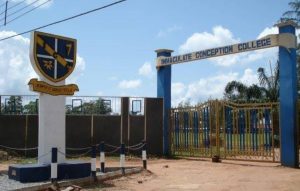
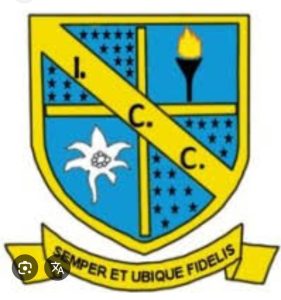
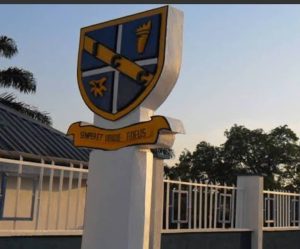
News
Speaker Abbas Decries Plateau Killings, Says “Enough Is Enough”

…urge security agencies to act swiftly and decisively
By Gloria Ikibah
The Speaker House of Representatives, Rep. Tajudeen Abbas, has condemned the latest killings in some communities in Plateau State, and called for a decisive action to end such “barbaric acts.”
Naijablitznews.com reports that in the latest attacks, at least 50 people were reportedly murdered at Zikke and Kimakpa communities of Kwall District in Bassa Local Government Area of Plateau State.
The Speaker, who said, “enough is enough” on the killings, expressed deep concerns that innocent people are being killed unabated.
He said: “I am indeed saddened by the latest killings in some communities in Plateau State. It is unfortunate that innocent Nigerians get killed in a most barbaric and brutal manner. Enough of the killings on the plateau and other parts of the country.
“In line with the earlier directive by the President/Commander-in-Chief of the Armed Forces of the Federal Republic of Nigeria to the security agencies to fish out the killers of innocent Nigerians on the Plateau and other parts of the country, I call on them to intensify efforts,” the Speaker said.
Speaker Abbas sent heartfelt condolences to the people and government of Plateau State over the killings.
News
Reps Committee Invite Rivers State Sole Administrator for Talks

By Gloria Ikibah
The House of Representatives Ad-Hoc Committee on Rivers State has held its first meeting at the National Assembly in Abuja, following its inauguration by Speaker Tajudeen Abbas on Tuesday, April 15, 2025.
The committee was set up after the National Assembly approved the President’s declaration of a state of emergency in Rivers State.
At the meeting, members discussed early reports and events from the state since Vice Admiral Ibok-Ete Ibas (rtd.) was appointed as Sole Administrator.
To get a clearer picture of the situation on the ground, the committee has invited Ibas to appear for a detailed discussion.
Chairman of the committee and House Leader, Hon. (Prof.) Julius Ihonvbere, said the session would help lawmakers carry out their oversight duties properly, as laid out in the Constitution.
He said: “This engagement is necessary to ascertain the true state of affairs in Rivers State and ensure that the House remains properly guided in the discharge of its oversight responsibilities in the public interest.”
The Sole Administrator has been scheduled to meet with the Committee on Thursday, April 17, 2025, at the National Assembly Complex, Abuja.
An official invitation has already been sent and received. This public notice is to keep the process open and transparent.The Committee has also restated its promise to carry out its responsibilities with fairness, openness, and in line with the Nigerian Constitution.
News
Suswan kicks as PDP governors reject merger talks

By Francesca Hangeior
Gabriel Suswan, a former governor of Benue State, has criticised the recent decision by governors of the Peoples Democratic Party (PDP) to reject merger talks with other political groups, describing it as premature and out of touch with the political reality facing the party.
Speaking on Arise television program, The Morning Show, monitored by BusinessDay on Tuesday in Jos, Suswan said that the move lacks proper consultation and fails to address the underlying discontent within the party’s ranks.
It would be recalled that the PDP governors, during their last meeting in Ibadan, the Oyo State capital, firmly dismissed the idea of any merger ahead of the 2027 general elections.
However, they noted that the party remains open to welcoming individuals or groups willing to join its ranks.
Suswan, a former senator disagreed with the outright rejection, arguing that such talks should not be viewed as a concession of defeat, but rather as a strategic opportunity to address the party’s dwindling influence.
According to Suswan, the PDP remains Nigeria’s only true legacy party but is currently in crisis due to unresolved internal issues, including manipulated state congresses and postponed NEC meetings.
“The PDP remains the only true legacy party in Nigeria. Ordinarily, the resolution by the PDP governors should have resonated with many party loyalists. But as things stand, I don’t believe the rejection of merger talks should be seen as an absolute stance. People have started to realise that PDP needs fixing and there’s a lot that needs to be fixed.
“Expectations from PDP stakeholders were that the governors would have taken decisive steps much earlier. Unfortunately, selfish interests across the party prevented that. So, for them to come out now and sound so definitive in rejecting merger discussions appears disconnected from the current political realities. Merger talks don’t necessarily mean an actual merger will happen but given the circumstances, rejecting such talks outright feels premature.
“If I had been part of that resolution, I would’ve advised against it. There’s been no proper consultation with stakeholders. People have been waiting, hoping for reforms. PDP has unresolved internal issues, state congresses were either not held or manipulated, and those injustices were never addressed. So, many have become disillusioned and mentally checked out of the PDP”; Suswan said.
The former governor attributed this disillusionment to the failure of party leadership to act decisively in times of crisis. He insisted that if the PDP had been properly managed, the issue of seeking alternatives or engaging in merger talks would not arise.
On the broader challenges facing the PDP, Suswan identified two critical factors: the need for credible leadership and an inspiring presidential candidate.
He stressed that leadership at the national level must be transparent and trustworthy, while the candidate for 2027 must emerge based on merit and public appeal, not money or imposition.
Responding humorously to a question on who currently holds the position of National Secretary of the PDP, Suswan said, “Ask the Supreme Court,” pointing to the legal confusion surrounding the role.
-

 News17 hours ago
News17 hours agoEmergency Rule: Punch Editorial went overboard – CRP
-

 News8 hours ago
News8 hours agoEx-finance minister rearrested in new fraud probe
-

 News17 hours ago
News17 hours agoJust in: Rivers Administrator summons, suspended Gov, deputy
-

 News6 hours ago
News6 hours agoHope for Nigerians as Dangote refinery slashes petrol price again
-

 News16 hours ago
News16 hours agoCBEX Staff Arrested After Trading Platform Collapse
-
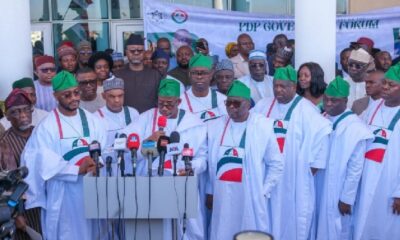
 News5 hours ago
News5 hours agoPDP governors declare support for Tinubu
-

 News8 hours ago
News8 hours agoFubara: How can I forgive somebody who never requested for it– Wike
-

 News10 hours ago
News10 hours agoAlleged Se3ual Harassment: Natasha Declines Out-Of-Court Settlement Proposal By Akpabio’s Counsel






